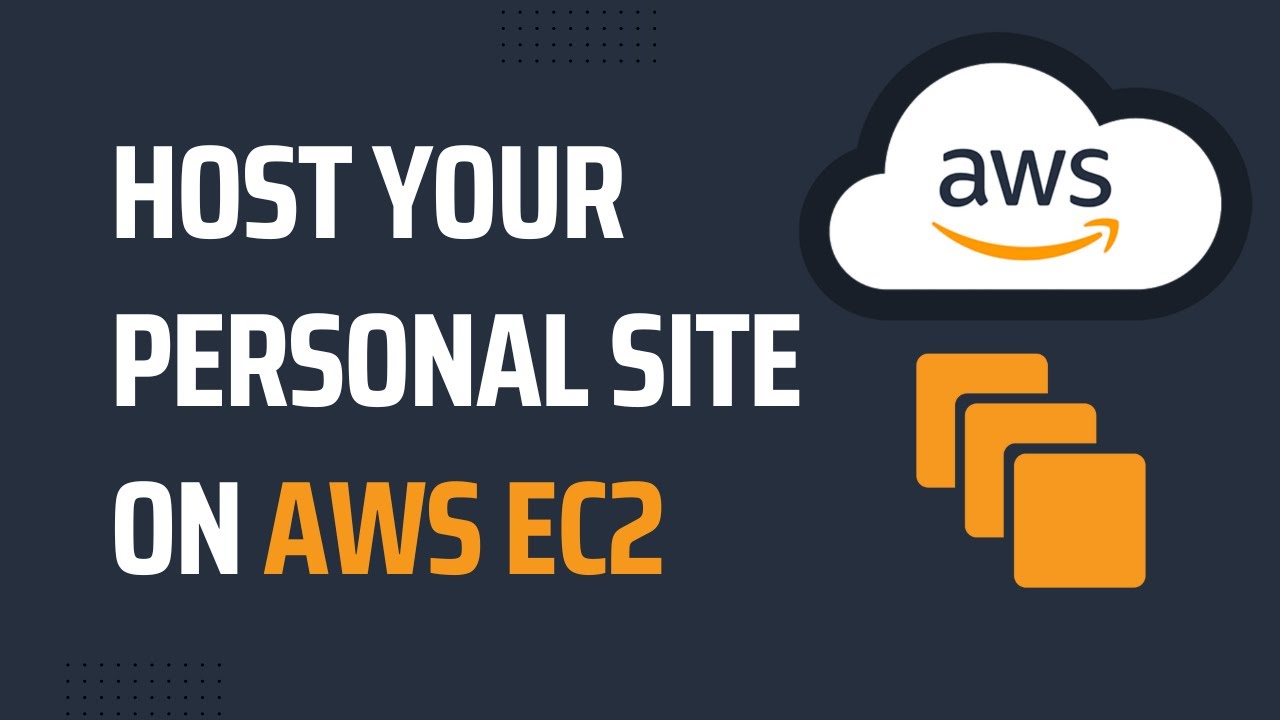AWS EC2 website hosting has become a popular choice for businesses and individuals seeking scalable, reliable, and cost-effective solutions. AWS EC2 offers a robust platform for hosting websites, providing a wide range of instance types, security features, and integrated services to meet diverse needs.
This guide delves into the intricacies of AWS EC2 website hosting, covering everything from setting up your first instance to optimizing performance and security. We’ll explore the benefits of cloud computing, compare different instance types, and discuss essential best practices for managing your website on AWS EC2.
Introduction to AWS EC2 for Website Hosting

In the realm of website hosting, AWS EC2 (Elastic Compute Cloud) has emerged as a powerful and flexible solution, enabling businesses and individuals to deploy and manage websites with unprecedented scalability and efficiency. AWS EC2 is a core component of Amazon Web Services (AWS), a comprehensive cloud computing platform that provides a wide range of services for various IT needs.
AWS EC2 empowers users to launch virtual servers, known as instances, in the cloud, providing a virtualized computing environment that mimics the functionality of physical servers. This cloud-based approach offers numerous advantages over traditional hosting methods, making it an attractive option for a diverse range of website hosting requirements.
Benefits of Using AWS EC2 for Website Hosting
AWS EC2 offers a compelling set of benefits for website hosting, setting it apart from traditional hosting methods. These advantages include:
- Scalability and Flexibility: AWS EC2 allows you to easily scale your website’s resources up or down as needed, ensuring that your website can handle fluctuating traffic demands without performance degradation. You can adjust the size and number of instances based on your website’s requirements, providing a dynamic and responsive hosting environment.
- Cost-Effectiveness: AWS EC2 offers a pay-as-you-go pricing model, allowing you to only pay for the resources you use. This eliminates the need for upfront investments in hardware and infrastructure, making it a cost-effective solution, especially for websites with variable traffic patterns.
- High Availability and Reliability: AWS EC2 leverages a global network of data centers, ensuring high availability and redundancy for your website. This reduces the risk of downtime due to hardware failures or other technical issues, enhancing the reliability and uptime of your website.
- Security: AWS EC2 provides robust security features, including access control, encryption, and security monitoring, to protect your website and data from unauthorized access and cyber threats. The platform is constantly updated with security patches and best practices, ensuring a secure hosting environment.
- Global Reach: AWS EC2’s global infrastructure allows you to deploy your website in multiple regions around the world, enabling you to serve users with low latency and improve their overall experience. This geographic distribution also enhances the resilience and fault tolerance of your website.
Key Features and Services of AWS EC2 for Website Hosting
AWS EC2 offers a comprehensive set of features and services specifically designed to facilitate website hosting. These key elements include:
- Instance Types: AWS EC2 provides a wide range of instance types, each optimized for different workloads and performance requirements. These instance types cater to various website hosting needs, from small personal websites to large-scale enterprise applications. You can choose from general-purpose instances, compute-optimized instances, memory-optimized instances, and more, ensuring that your website runs smoothly and efficiently.
- Elastic Load Balancing: AWS Elastic Load Balancing distributes incoming traffic across multiple EC2 instances, ensuring high availability and performance for your website. It acts as a traffic manager, directing requests to the appropriate instances based on predefined rules and policies, enhancing the overall scalability and reliability of your website.
- Amazon S3 (Simple Storage Service): AWS S3 provides a highly scalable and durable object storage service for storing your website’s static content, such as images, CSS files, and JavaScript files. This service offers cost-effective storage for large amounts of data, ensuring that your website’s assets are readily available to users.
- Amazon CloudFront: AWS CloudFront is a content delivery network (CDN) that caches your website’s content at edge locations around the world, delivering content to users with low latency. This improves website performance, especially for users located far from your server, enhancing the user experience and reducing website load times.
- Amazon Route 53: AWS Route 53 is a highly reliable and scalable Domain Name System (DNS) service that allows you to manage your website’s domain names and DNS records. This service ensures that your website is accessible to users worldwide, providing a stable and reliable DNS infrastructure for your website.
Choosing the Right Instance Type for Your Website: Aws Ec2 Website Hosting
Selecting the appropriate EC2 instance type is crucial for optimal website performance and cost-effectiveness. Each instance type offers a unique combination of CPU, memory, storage, and networking capabilities, tailored to different workloads and resource requirements.
Instance Type Considerations, Aws ec2 website hosting
Choosing the right instance type involves evaluating your website’s specific needs and matching them with the capabilities of available instance types. Factors to consider include:
- Website Traffic: The anticipated number of concurrent users and page views per second directly impacts the required processing power and memory. High-traffic websites require instances with higher CPU and memory capacity.
- Resource Requirements: The complexity of your website’s code, database size, and media content influences the resources needed. Websites with heavy data processing, large databases, or high-resolution images necessitate instances with more storage, memory, and potentially specialized features.
- Budget: Instance types vary in pricing based on their capabilities. Balancing performance with cost is essential, especially for websites with limited budgets.
Instance Type Categories
AWS offers a diverse range of instance types categorized based on their core functionalities and use cases. Some of the most common categories include:
- General Purpose: These instances provide a balanced combination of CPU, memory, and storage, suitable for a wide range of workloads, including web servers, application servers, and databases.
- Compute Optimized: Designed for computationally intensive applications, these instances offer high CPU power and network bandwidth, ideal for demanding tasks like scientific computing, video encoding, and gaming.
- Memory Optimized: These instances prioritize memory capacity, suitable for applications requiring large datasets, in-memory databases, and high-memory caching.
- Storage Optimized: Instances in this category provide high storage throughput and capacity, ideal for applications with large data volumes, like data warehousing, analytics, and content delivery.
- Accelerated Computing: These instances feature specialized hardware accelerators like GPUs or FPGAs, designed for machine learning, deep learning, and other computationally demanding tasks.
Instance Optimization
Optimizing your EC2 instance involves configuring its resources to match your website’s specific needs. This includes:
- CPU Cores: The number of CPU cores determines the processing power available. Choosing the right number of cores depends on your website’s CPU-intensive tasks and anticipated traffic.
- Memory: Adequate memory is crucial for efficient website operation. Ensure your instance has sufficient memory to accommodate your website’s code, data, and user sessions.
- Storage: Select the appropriate storage type (SSD, HDD) and capacity based on your website’s data volume and performance requirements. SSD offers faster read/write speeds, ideal for databases and frequently accessed data.
- Networking: Choose a network configuration that supports your website’s traffic volume and bandwidth needs. Consider factors like network throughput, latency, and the availability of dedicated network interfaces.
Instance Type Selection for Different Website Traffic Levels
Here’s a general guide for choosing instance types based on website traffic levels:
| Traffic Level | Instance Type Recommendation | Rationale |
|---|---|---|
| Low Traffic | t2.micro, t3.nano | These instances offer cost-effectiveness for websites with minimal traffic and resource requirements. |
| Medium Traffic | t2.small, t3.small, m4.large | These instances provide a balance of performance and cost, suitable for websites with moderate traffic and resource needs. |
| High Traffic | m5.xlarge, c5.xlarge, r5.xlarge | These instances offer high CPU and memory capacity, suitable for websites with high traffic and demanding resource requirements. |
Instance Type Selection for Different Website Resource Requirements
Here’s a general guide for choosing instance types based on website resource requirements:
| Resource Requirement | Instance Type Recommendation | Rationale |
|---|---|---|
| Low Resource Requirement | t2.micro, t3.nano | These instances are suitable for websites with minimal code complexity, small databases, and limited media content. |
| Medium Resource Requirement | t2.small, t3.small, m4.large | These instances are suitable for websites with moderate code complexity, moderate database size, and a reasonable amount of media content. |
| High Resource Requirement | m5.xlarge, c5.xlarge, r5.xlarge | These instances are suitable for websites with complex code, large databases, and high-resolution media content. |
End of Discussion

As you navigate the world of AWS EC2 website hosting, remember that flexibility, scalability, and security are key. By leveraging the power of AWS, you can build and maintain a robust online presence that adapts to your evolving needs. Whether you’re a seasoned developer or a new website owner, this guide provides a solid foundation for success in the cloud.


